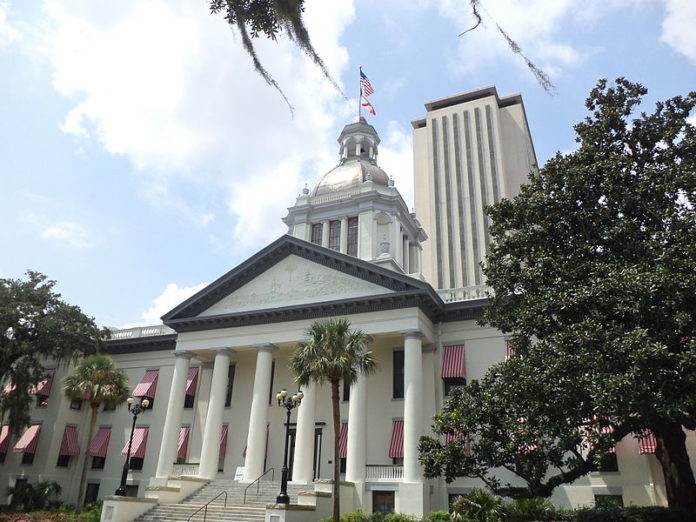Of the 3,500 bills filed by lawmakers in Tallahassee, 191 became law nine days ago. Here are a few of the notable ones that are now in effect.
SB 1084 — EMOTIONAL SUPPORT ANIMALS
Legislation, sponsored by state Sen. Manny Diaz and signed by the governor, prohibits discrimination in housing provided to a person with a disability or a disability-related need for an emotional support animal. Specifically, the bill prohibits a landlord from charging a person with an emotional support animal additional fees, but it does allow a landlord to request certain written documentation that supports that the person has a disability; and prohibit the animal if it poses a direct threat to the safety, health or property of others. It also creates the misdemeanor crime of providing false or fraudulent emotional support animal information or documentation.
CS/HB 199 — DONNA’S LAW
Passing unanimously in the House and Senate, the bill provides that there is no time limitation for prosecuting sexual battery when the victim is younger than 18 years of age at the time of the offense, and the offense was committed on or after July 1, 2020. The bill, known as Donna’s Law, is named for Orlando resident Donna Hedrick, who was a victim of alleged sexual abuse by a former high school teacher in the early 1970s.
SB 172 — FLORIDA DRUG AND COSMETIC ACT
The bill expressly preempts to the state the regulation of over-the-counter proprietary drugs and cosmetics, which includes sunscreen. Florida law does not currently preempt the regulation of such products; therefore local governments may pass ordinances regulating products like sunscreen as long as such ordinances do not conflict with state or federal law. The bill’s preemption provisions would end this local regulation practice. Key West passed a sunscreen ban but delayed its implementation until 2021.
CS/SB 664 — VERIFICATION OF EMPLOYMENT ELIGIBILITY
The bill requires public employers, contractors and subcontractors to use E-Verify and requires private employers to use E-Verify or to use the Form I-9 and maintain copies of the documents used to complete the I-9 for three years. E-Verify is a free, Internet-based system through which an employer may quickly confirm that a newly-hired employee is authorized to work in the United States. To use E-Verify, an employer inputs information from an employee’s I-9 and, usually within seconds, obtains a result. In FY 2019, 98.5% of the persons run through E-Verify were automatically confirmed as “work authorized.”
HB 971 — ELECTRIC BIKES
Legislation authorizes an e-bike to operate where bicycles are allowed, including, but not limited to, streets, highways, roadways, shoulders, bicycle lanes, and bicycle or multi-use paths. However, local governments may regulate the operation of e-bikes on streets, highways, sidewalks, and sidewalk areas, and local governments and state agencies with jurisdiction over bicycle paths, multi-use paths, and trail networks may restrict or prohibit the operation of e-bikes on such paths and networks.
HB 641 — FUNDS FOR SCHOOLS
Legislation signed into law by the governor raises the minimum base pay for new, full-time teachers to $47,500. It also repeals the Florida Best and Brightest Teacher Program, Florida Best and Brightest Principal Program and Florida Best and Brightest Teacher and Principal Allocation.
HB 177 — PRESCRIPTION DRUG DONATION
This bill allows residents with prescriptions to receive donated prescription drugs and supplies and identifies nursing homes, hospitals and pharmacies to donate the drugs. The prescriptions must be approved for use in the U.S., and be in unopened containers. Donations of cancer drugs or controlled substances are not allowed.
SB 404 — PARENTAL CONSENT FOR MINORS’ ABORTIONS
The bill amends the Parental Notice of Abortion Act in s. 390.01114, F.S., to add consent requirements and renaming the Act as the Parental Notice of and Consent for Abortion Act. The bill prohibits a physician from performing an abortion on a minor unless the physician has received a notarized, written consent statement with specified language signed by the minor’s mother, father, or legal guardian and the physician has been presented with proof of identification by the parent or legal guardian. The consent requirement does not apply in some cases, such as during a medical emergency or if the minor petitions the circuit court for permission.




















